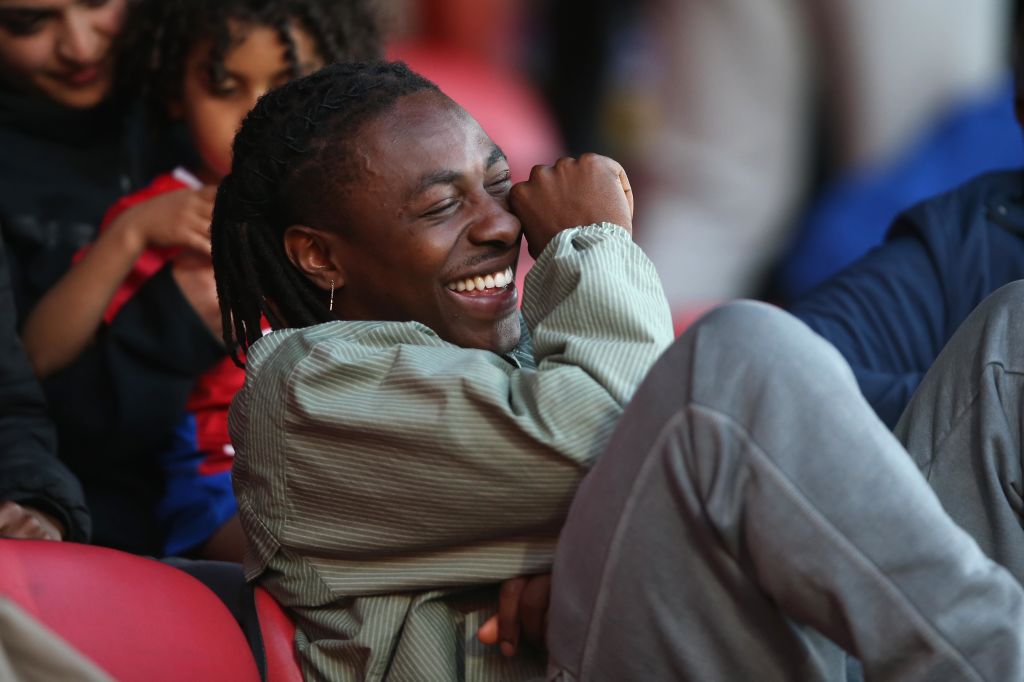In youth football circles, U-21 football has been a bone of contention for many years with compelling arguments on both sides of the fence. At the heart of the debate are the questions: is winning more important at this stage, or should it all be about development? But why can’t it be both?
We like to break down football into four key quadrants to judge the development of players: technical, tactical, physical and mental. U-21 football covers two of these exceptionally well: technical and tactical but what about the other two measures – physicality and mentality? There is no doubt that the technical level in Category One English U-21 football is exceptionally high.
Most of these players have had elite-level coaching for 12 to 15 years from the age of six, so their technical ability in all areas of the game should be extremely good, as well as their tactical understanding of how their team/coach wants them to play in and out of possession. They are taught from a young age to have the courage to take the ball under pressure and how to press/counter-press; so, their technical and tactical ability is bound to improve.
In fairness, the intensity of U-21 games has improved, and the game is played at an extremely fast tempo. But questions remain around the mentality of the games, the individual player’s mindset in games, and to some extent the physicality of U-21 games. As much as every player, coach and club wants to win every game they compete in, the U-21 League is still primarily viewed as a development platform, and in some cases a fitness vehicle.
If a U-21 team loses five games in a row it is unlikely the head coach is going to be fired or a player is going to be put in the ‘bomb squad’ (a group of players unlikely to see much game-time) – therefore the pressure on games at this level is different to a game at first-team level. If a first-team loses five games in a row it is very likely someone will lose their job. Youth football does have its limitations.

If you attend U-18 and U-21 games you might notice how quiet the games can often be. Vocal players are rare, therefore the few that are vocal at U-21 level stand out. Sir Alex Ferguson wrote, in his book ‘Leading’: “Leaders are usually unaware, or at least underestimate, the motivating power of their presence. Nobody sees themselves as others see them.”
There is no doubt that the more vocal leaders on a pitch during a U-21 game gain more exposure, regardless of technique, especially among coaches and scouts at EFL level seeking players with the personality to build success at that level and compete at a technical level with more experienced players. Loans at first-team level are all about trust, character and the ability to handle pressure.
All scouts, managers and coaches know that players at Category One U-21 games can handle playing in the EFL on a technical level, otherwise they wouldn’t have made it through the system as far as they have done in the first place, but what they are being judged on is their resilience, determination and character. Can an 18-year-old player handle a much more experienced player, probably close to double their age, screaming at them after a game they have just lost 1-0 because that young player lost his marker at a corner in the dying embers of the game?
Can that 18-year-old give out good information during the game to his teammates and be aggressive enough in the right way to get his point across? Are they going to take responsibility and accountability for an error they may make? They simply don’t have to in academy football as there are no significant repercussions.
VIDEO: Why Cole Palmer Is The Best Player In The Premier League Right Now
Of England’s Euro 2024 squad, 19 of the 26 played in the EFL, with 13 of those doing so on loan. All made their loan debuts before the age of 20.
Loan appearances between them amassed 672, highlighting the importance of first-team football in their development. Kyle Walker, ranked at no.63 in FourFourTwo’s list of the best players in the world right now, said about his Northampton Town loan move: “It was a reality check for me, but a very good one. There were players there whose mortgages were on the line and winning football matches made it easier for them to look after their families”. It further cements the idea that the exposure of a loan at a young age is important to a player’s natural development.
When playing youth-level football more often than not all the players are in the same age range of around three to four years difference. Therefore, their physical profiles are all relatively similar, of course, you will have a few anomalies but on the whole very similar. Drop those same players into a first-team game at any level and immediately they are playing alongside players who could be double their age with much more power and experience – making this transition without any real match practice is very difficult.

One worry is that England may not be producing certain types of players that are crucial to a successful team. There are so many examples of players who have had excellent careers playing hundreds of games at Premier League/Championship level who are limited technically but have an elite mindset, winning mentality, and a natural ability to lead and take responsibility – would these players make it through our academy system now? We aren’t sure they would.
This is a travesty as you need these types of characters in a squad to lead and take accountability – any successful team is built on a blend of players; of course, we all want the exciting flair players that can go and win a game in a moment with a flash of brilliance, but we also need the leaders to help prevent losing games in the last minute through being disciplined, vocal and organising the rest of the team. We don’t want to create robots through our youth system. We want players with flair, character, a bit of edge, confidence and an aura about them that shows they are mentally and physically ready to compete in a much higher-pressure environment.
One of England’s biggest flair players, Eberechi Eze, learned his trade in League Two with Wycombe Wanderers, aged 19, playing a style of football alien to his natural game, enabling him to understand the physicality and mentality of senior men’s football, and ultimately take responsibility.
What is the solution?

This is undoubtedly the hard part. The only way to add pressure to U-21 games is to make them worth more to win, however, it’s difficult to strike that balance of not hindering the development aspect provided by these games. We are strong believers that by the age of 20, players should not be playing regularly in U-21 games. It should be mandatory for a player who is 20 years old and is not in and around the first team to be sent out on loan to non-League, even if just for a month.
There they will gain invaluable experience both physically and mentally. Non-league provides a much better chance for that young player to find a club if they are not deemed to be at the level of their parent club. Playing 20 games in a senior environment is entirely different and much more valuable than just coasting in the U-21s.
Harry co-founded the agency, DEFY, click HERE to learn more.






